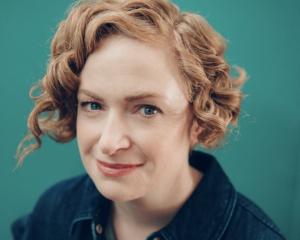
This is possibly the best opening I have read in years, and Mary Horlock's debut novel lives up to the promise of those first few lines.
Catherine has just killed her best friend, and although you might think such a crime would be impossible to conceal in a place as small as Guernsey, everybody thinks it was a tragic accident. But this is a community that is used to keeping secrets, so she is writing it all down. In so doing she intends to expose the truth both about herself and the island.
Guernsey was captured during World War 2, and islanders were almost outnumbered by German troops. Resistance was limited, albeit inventive (my favourite being the removal all the road signs to confuse the unwelcome visitors) and the line between survival and collaboration was indistinct at best. After the war, communities chose to forget or deny much of what happened, even though the physical remnants of occupation remain to this day.
This is a story Catherine is uniquely placed to tell; her father was a historian who spent his life documenting the complex truth of the war years and after his death she has immersed herself in his papers.
Included among them is the story of his brother Charlie, whose actions directly or indirectly killed their father, and Catherine's confession is interspersed with that of her uncle.
Many first-person novels fail because the author is unable to create and maintain a register appropriate for the central character, and one of the most impressive aspects of the novel is the way it switches between two very different and entirely believable voices.
Catherine is smart, engaging and sarcastic; her narrative is littered with footnoted asides that are as funny as they are informative ("Luxembourg is a bit like Guernsey, because it is also small and boring, has no taxes and is full of rich people"), and her story will be uncomfortably familiar to anybody who has grown up a social outsider in a small town. Charles' testimony is scattered with phrases in the local patois, and although he was a similar age to Catherine at the time of the Occupation, his voice is tinged with weariness and regret.
The story itself may be fictional but the events he describes are grounded in the memories of those who lived through them.
Despite their differences there is a sense that history is repeating itself, and the two strands of the story unfold in parallel to reveal truths that are much more complicated than they initially appear. Engrossing, moving and tragi-comic, The Book of Lies had me at "Hullo" and kept me to the very end.

When they first meet in London, Colin and Tilda fall for each other deeply and instantly, but as time and the novel progress their love curdles and toxifies into loathing. Although cracks appear early in the relationship, the more fragmented it becomes the more deeply entangled they find themselves.
Trapped in a tiny town deep in Victoria with a madwoman who will not let him leave, Colin is now baring his soul. Why is left unspoken, but one dreads to think what the writer is preparing for.
I kept getting flashes of Whatever Happened to Baby Jane although I couldn't quite decide who is Blanche and who is Jane in this poisonous pas de deux; while the reader cannot help but empathise with Colin, we only have his version of events and as such must regard him as an unreliable narrator and he only admits as much culpability as is necessary to appear sympathetically fallible (he feels duty-bound to stay when Tilda is diagnosed with breast cancer, for example).
Yet who among us is pure enough to cast the first stone?
We all want to present and regard ourselves in the best light. It is testament to Sherborne's skill as an author that the reader can take Colin's side while simultaneously imagining how the same events might appear from Tilda's perspective. For all that it disturbed me deeply, I was unable to put this novel down.
- Dr McKinney is a Dunedin scientist.
BOOK OF LIES
Mary Horlock
Text THE AMATEUR SCIENCE OF LOVE
Craig Sherborne
Text












